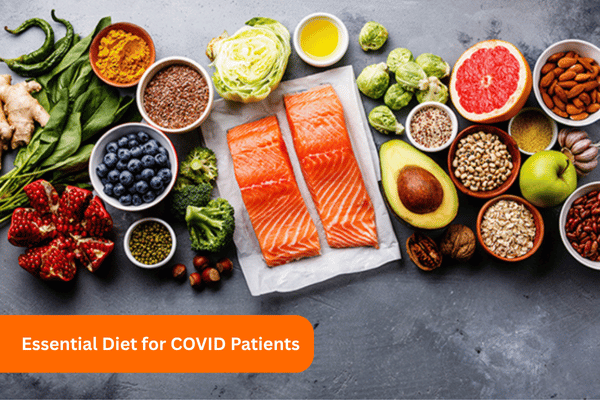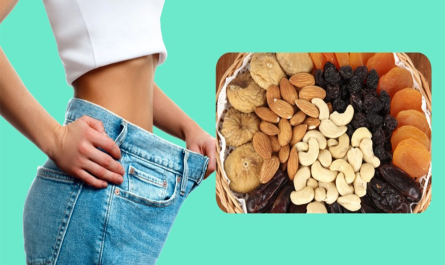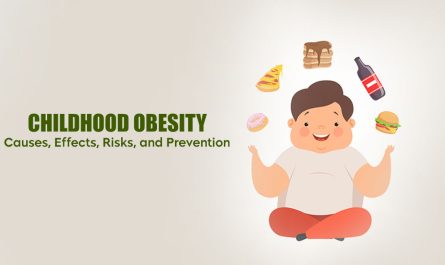The COVID-19 pandemic has affected millions globally, and in India, the impact has been profound. As the situation continues to evolve, managing the disease effectively—whether preventing infection or aiding recovery—has become a priority for healthcare providers. One crucial aspect of managing COVID-19 is ensuring that patients receive the right diet to support their immune system, enhance recovery, and help prevent complications. The importance of diet during COVID recovery cannot be overstated, and in this guide, we will explore the essential dietary components that can aid patients in their journey to recovery in 2025.
The Role of Nutrition in COVID-19 Recovery
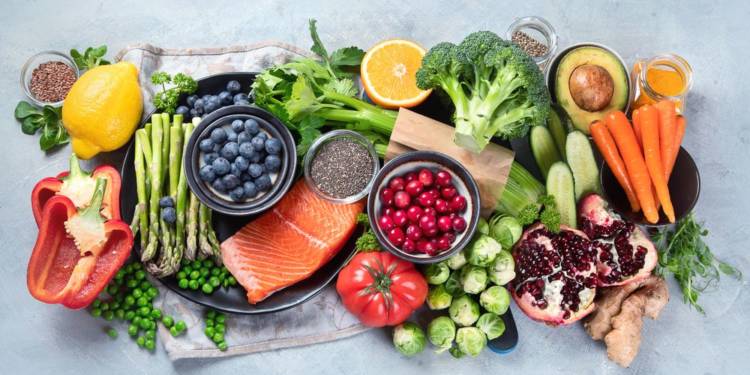
The food we eat plays a significant role in how our bodies respond to illness. When fighting a viral infection like COVID-19, the body requires more energy and specific nutrients to strengthen the immune system, repair damaged tissues, and fight off infection. Nutrition becomes even more crucial for COVID patients, as they might experience fatigue, loss of taste and smell, and decreased appetite.
Maintaining a well-balanced diet can help ensure that the body gets the vitamins, minerals, and macronutrients needed for energy, immune function, and recovery. Nutritional interventions can reduce the risk of complications, shorten recovery time, and improve the overall quality of life during illness.
Key Nutrients for COVID Patients
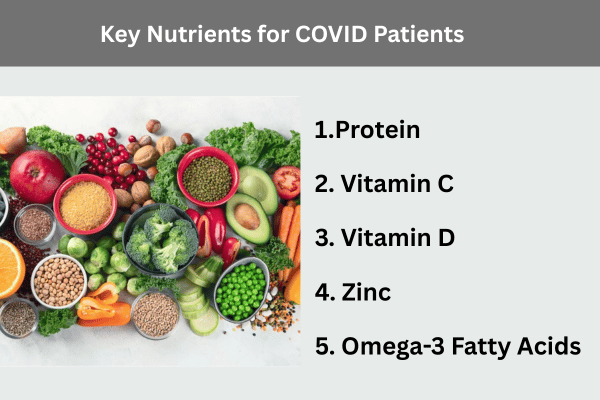
Protein: Protein is essential for the repair and regeneration of body tissues, including muscles and the immune system. For COVID patients, consuming adequate protein is crucial as it supports immune function and helps the body recover from the virus. Lean meats, eggs, legumes, nuts, and dairy products are excellent sources of protein. Patients should aim for 1.2 to 1.5 grams of protein per kilogram of body weight daily, depending on their condition.
Vitamin C: This vitamin is known for its immune-boosting properties. It helps strengthen the immune system and promotes wound healing. Fresh fruits and vegetables like oranges, lemons, bell peppers, tomatoes, and broccoli are rich in Vitamin C and should be included in the daily diet.
Vitamin D: Vitamin D plays a crucial role in immune system regulation. Low levels of Vitamin D have been linked to an increased risk of respiratory infections, including COVID-19. Foods such as fortified milk, fatty fish, and egg yolks are good sources of Vitamin D. In some cases, supplementation may be advised, but always consult a healthcare professional.
Zinc: Zinc is another essential nutrient that supports immune function and wound healing. It is found in foods like beans, nuts, seeds, whole grains, and dairy products. Zinc is also available in supplement form, but it’s best to consult a healthcare provider before starting supplementation.
Omega-3 Fatty Acids: Omega-3 fatty acids, found in fatty fish like salmon, flaxseeds, and walnuts, have anti-inflammatory properties that can help reduce inflammation associated with COVID-19. These healthy fats can support lung health and immune function.
Hydration: Staying hydrated is essential for recovery, especially during illness. Dehydration can worsen symptoms, including fatigue and headache. Water, coconut water, herbal teas, and broths can help maintain fluid balance. Electrolyte-rich drinks like ORS (Oral Rehydration Solution) can also help prevent dehydration.
For more tips on boosting your immune system, visit our blog, discover the top 10 foods that enhance immunity.
Dietary Guidelines for COVID Patients at Different Stages
Mild Symptoms or Asymptomatic Patients:
- If you are asymptomatic or have mild symptoms, maintaining a balanced diet is key to preventing malnutrition and supporting immune function.
- Focus on foods that are rich in vitamins and minerals, such as fruits, vegetables, lean meats, and whole grains.
- Aim for smaller, more frequent meals to keep energy levels up.
- Continue staying hydrated to avoid dehydration.
Moderate Symptoms:
- If you experience moderate symptoms such as fever, cough, fatigue, or body aches, it’s important to focus on easy-to-digest, nourishing foods.
- Opt for soups, broths, smoothies, and pureed vegetables to ensure you’re consuming enough nutrients without overwhelming the body.
- Avoid greasy, spicy, and heavy foods that can irritate the digestive system.
- Continue to hydrate with water, coconut water, and herbal teas.
Severe Symptoms or Hospitalized Patients:
- If you’re hospitalized or experiencing severe symptoms, it’s crucial to follow a nutrition plan prescribed by healthcare professionals.
- In this stage, patients may require a higher intake of calories and protein to prevent muscle wasting and support healing.
- Intravenous (IV) fluids and tube feeding may be necessary in some cases to meet nutritional requirements.
- Specialized medical nutrition therapy may be offered to address specific needs like respiratory health, inflammation reduction, or wound healing.
Managing Appetite Loss During COVID
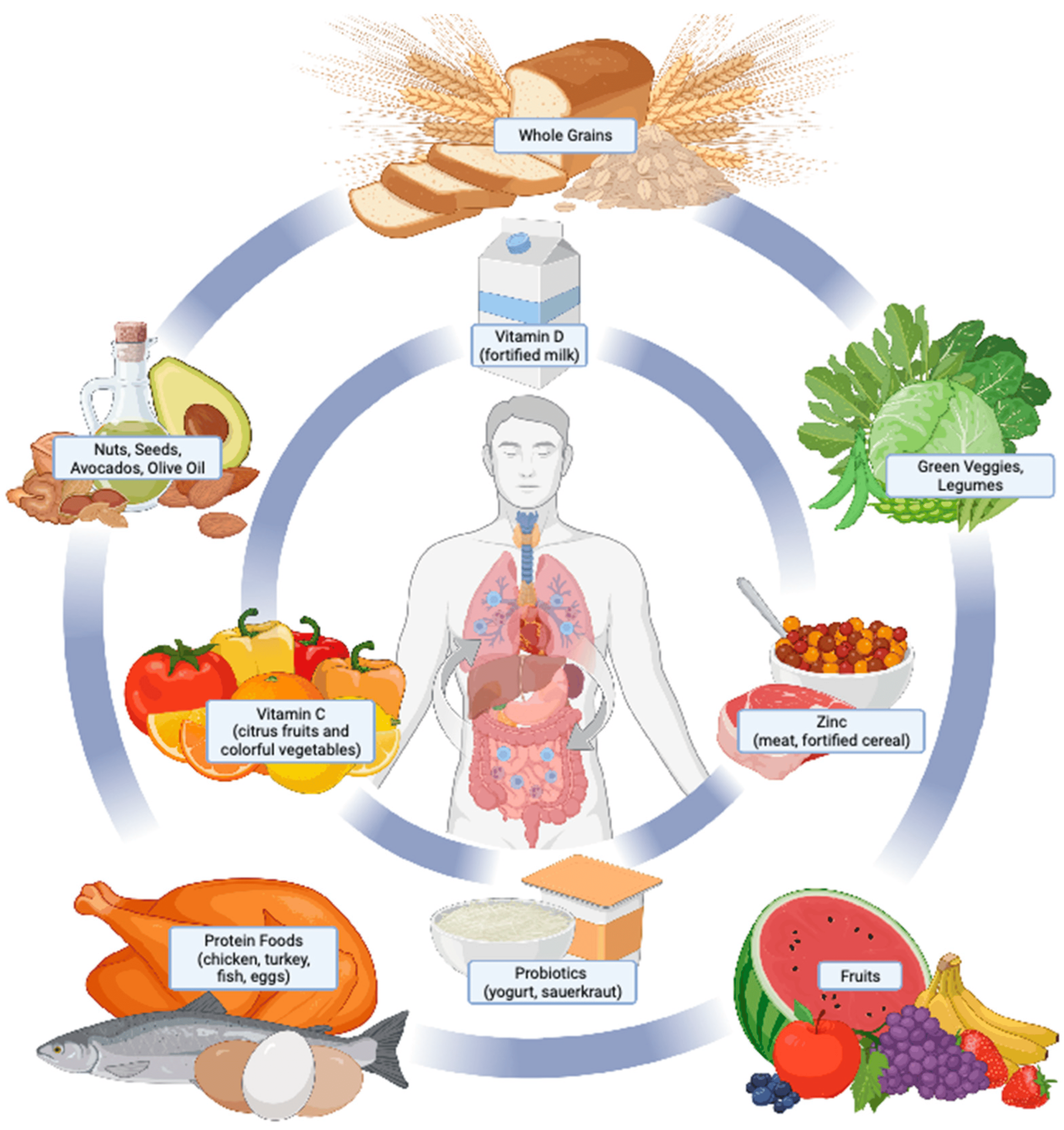
A common symptom of COVID-19 is the loss of appetite, often due to illness, fever, or changes in taste and smell. Managing this can be challenging, but it’s crucial for recovery.
- Small, Frequent Meals: Instead of three large meals, try eating smaller, more frequent meals throughout the day. This reduces the burden on the digestive system while ensuring a steady intake of calories and nutrients.
- Focus on Nutrient-Dense Foods: Prioritize foods that pack a nutritional punch. Smoothies with fruits, vegetables, protein powders, and nuts can help provide necessary nutrients while being easy on the stomach.
- Stay Creative with Flavors: To combat taste changes, experiment with different herbs, spices, and seasonings. Adding fresh ginger, mint, or lemon to food can enhance flavor and make it more appetizing.
Tips for Improving Hydration
COVID-19 can lead to dehydration, especially when combined with fever or sweating. Here are a few ways to maintain hydration:
- Drink Fluids Regularly: Even if you’re not thirsty, drink small amounts of water or electrolyte-rich fluids throughout the day.
- Include Hydrating Foods: Foods with high water content, such as cucumbers, watermelon, oranges, and tomatoes, can help boost hydration.
- Electrolyte Drinks: Oral rehydration solutions (ORS) or sports drinks can help replace lost electrolytes and maintain fluid balance.
When to Consult a Nutritionist or Healthcare Professional
While home-based dietary modifications are helpful, it’s essential to seek professional advice, especially if symptoms worsen or if you have underlying health conditions such as diabetes or hypertension.
- Consult a nutritionist like Deepak KD, a qualified professional in Thane, India, who specializes in diabetes, hypertension, and recovery diets. She can tailor a specific diet plan based on your needs and medical history.
- Seek advice if you experience: significant weight loss, difficulty eating or drinking, persistent fatigue, or any changes in medical conditions like blood sugar or blood pressure levels.
FAQs
- What foods should I avoid during COVID recovery?
- Avoid processed, sugary, and oily foods as they can weaken the immune system. Also, steer clear of alcohol, which can impair recovery.
- Avoid processed, sugary, and oily foods as they can weaken the immune system. Also, steer clear of alcohol, which can impair recovery.
- How can I manage my blood sugar while recovering from COVID?
- If you have diabetes, monitor your blood sugar levels regularly and opt for low glycemic index foods like whole grains, vegetables, and lean proteins. Consult a nutritionist for tailored advice.
- If you have diabetes, monitor your blood sugar levels regularly and opt for low glycemic index foods like whole grains, vegetables, and lean proteins. Consult a nutritionist for tailored advice.
- Can I take supplements while recovering from COVID?
- Vitamin D, zinc, and Vitamin C supplements may be beneficial during recovery, but always consult a healthcare provider before taking any supplements.
- Vitamin D, zinc, and Vitamin C supplements may be beneficial during recovery, but always consult a healthcare provider before taking any supplements.
- How do I handle the loss of taste and smell?
- Try consuming foods with strong flavors like citrus fruits, ginger, garlic, or spicy foods to stimulate the taste buds.
- Try consuming foods with strong flavors like citrus fruits, ginger, garlic, or spicy foods to stimulate the taste buds.
- How long should I follow this diet during recovery?
- Stick to a balanced, immune-boosting diet until you feel fully recovered. Consult a professional for long-term dietary planning.
- Stick to a balanced, immune-boosting diet until you feel fully recovered. Consult a professional for long-term dietary planning.
Conclusion
Proper nutrition is a critical part of recovery from COVID-19. By focusing on nutrient-dense foods, staying hydrated, and following the right dietary guidelines at different stages of illness, patients can significantly improve their chances of a quicker and more efficient recovery. Remember, consulting with a nutritionist or healthcare provider is essential for a personalized approach to nutrition, ensuring that all your needs are met during this challenging time. Stay committed to your recovery, and don’t hesitate to seek expert guidance when needed.
